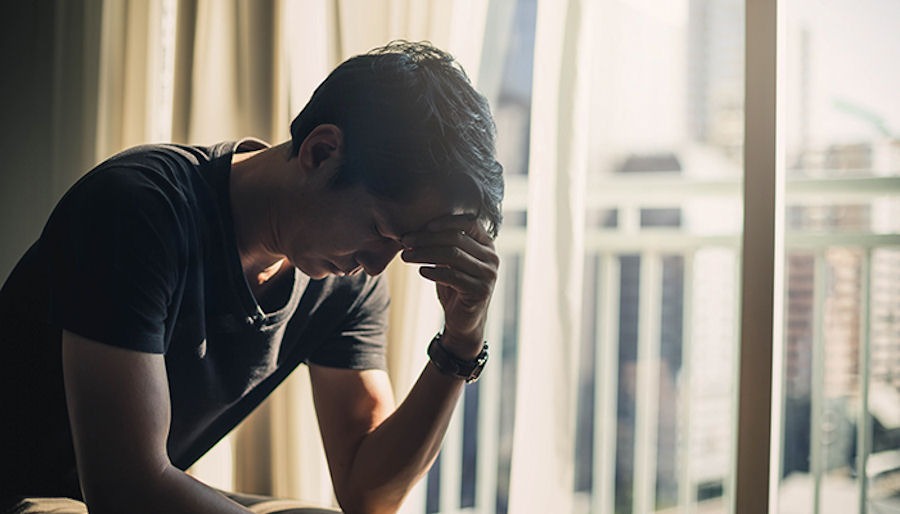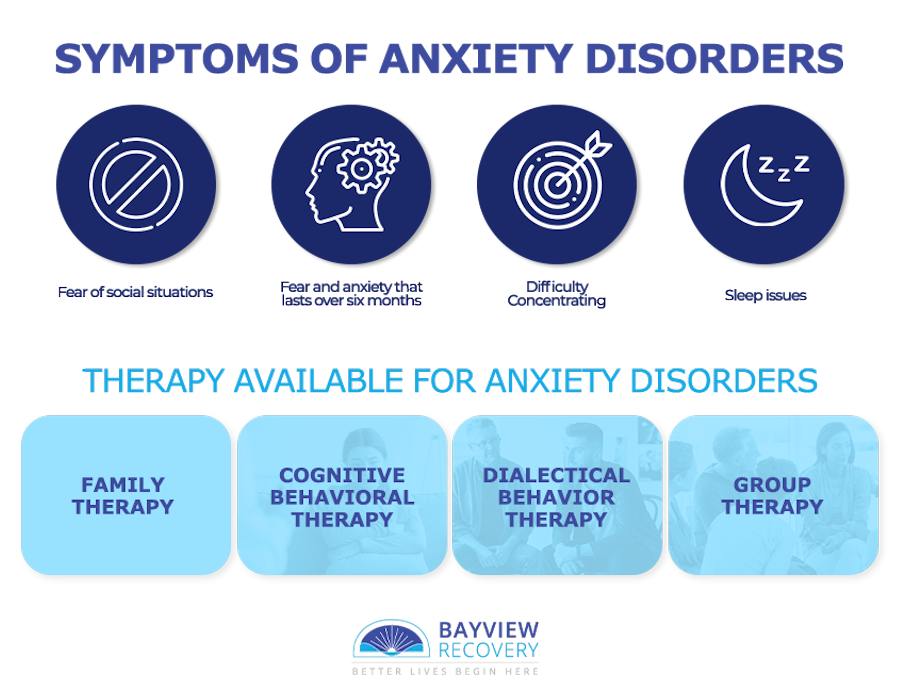Anxiety Treatment in Tacoma, Washington
We all experience anxiety and fear at some point in our lives; it is a natural human response to danger or imminent threats to ourselves or another individual. This fear can be powerful and occur, even if the threat is only an imagined one. Fear can also present itself in anticipation of a harmful event occurring.
These emotions are natural and have an essential value. They have evolved as a critical mechanism of self-protection.
But, when individuals experience these feelings persistently and unrelentingly, they can have the opposite effect on individuals.

What is an Anxiety Disorder?
An anxiety disorder is a mental health disorder where an individual feels constant, excessive, and extreme anxiety and fear. This progresses to the point that they need an anxiety treatment program. Instead of protecting people from harm, these feelings can take a toll on a person’s work and social life, and educational opportunities and cause extreme pain and suffering.
This is why chronic anxiety treatment is necessary. Those who suffer from mental health issues and substance misuse should seek professional help to work through these challenges. Are you ready to combat your anxiety and substance use? If so, we want to help.
Contact Bayview Recovery today or use our convenient online form to learn about our addiction and mental health rehab program.


- Separation anxiety (fear of being separated from a loved one)
- Phobia (fear of a specific object)
- Social anxiety (fear of social participation)
- Panic attacks (sudden, overpowering fear)
- General anxiety (persistent fear that may have many different points of origin)
Some of the signs of generalized anxiety disorder include the following:
- Fear and anxiety that lasts over four months in children and six months in adults
- Tension or restlessness
- Becoming easily tired
- Chronic fatigue
- Difficulty concentrating
- Sudden and frequent mental “blankness”
- Irritableness
- Physical tension
- Sleep issues, an inability to fall asleep, stay asleep, or unsatisfying sleep
Some of the effects of this disorder include:
- Fear of social situations, especially if they involve personal scrutiny
- Fear of acting in a way that will be humiliating, embarrassing, or lead to rejection
- Intense fear and anxiety before and during social situations
- Persistent avoidance of social situations
People who have phobias may experience:
- Fear of specific objects
- Fear or anxiety that exceeds what is warranted
- Persistent, active avoidance of particular objects
A person who has panic disorder experiences recurrent panic attacks. During a panic attack, the following may occur:
- Sweating, shaking, and trembling
- Palpitations or a fast heart rate
- Breathing difficulties
- Chest pain
- Nausea
- Dizziness
- Numbness or tingling sensations
- Feelings of detachment
- Fear of losing control
- Fear of dying
Individuals who suffer from severe anxiety may use prescription medication to address their anxious feelings and challenges. While this can be helpful for many people, some individuals may grow dependent on their medications and gradually increase their intake to help them manage their symptoms, even if it’s unsafe to do so. In other cases, people may self-medicate by using alcohol or illicit and habit-forming drugs.
Using prescription drugs, illicit substances, or alcohol to manage or treat anxiety disorders can be dangerous and lead to the development of a substance use disorder. In such instances, people develop co-occurring disorders, involving addiction and anxiety.
Not only do drugs and alcohol have their own adverse symptoms in the short term that must be dealt with, but also they invite long-term health problems, including dependency and addiction. The combination of anxiousness, dependency, and addiction often creates a vicious cycle where the drugs you take can increase your anxiety symptoms. You require more and more drugs to manage your now more severe mental health problems. The result is almost always serious medical problems, the risk of overdose, and accidental death.

Treating Anxiety Disorders and Addiction
Anxiety symptoms can interfere with all aspects of a person’s life. And if you do not seek professional help, you will need to find other ways to manage your symptoms, and individuals frequently turn to drugs and alcohol to self-medicate. Drugs and alcohol, however, only serve to increase, not decrease, your mental health symptoms. We treat a range of addictions, including:
- Alcohol addiction
- Heroin addiction
- Cocaine addiction
- Benzo addiction
- Meth addiction
Here at Bayview Recovery, we provide counseling and rehab for mental disorders that co-occur with drug abuse because we understand the importance of dual diagnosis care. So, if you’re struggling with substance abuse and mental health concerns, we are here to help you. Our dual diagnosis treatment in Washington State can assist you in your journey to wellness.

Benefits of Mental Health Treatments
Treating anxiety when you have a co-occurring substance abuse problem requires a dual diagnosis program. Any attempt to stop using drugs and alcohol on your own may be difficult when you have a co-occurring mental health condition. It can make the likelihood of a relapse extremely high. In all cases where an individual has co-occurring disorders, they will need medication-assisted treatment, comprehensive rehab, and individualized psychotherapy, such as:
- Cognitive-behavioral therapy
- Dialectical behavior therapy
- Group psychotherapy
- Family psychotherapy
- Trauma therapy
Talk therapy can help people build confidence, improve their daily life, develop coping skills, and address past traumas. It can be difficult to cope with the challenges of living with mental health conditions. Such conditions can even affect a person’s physical health. But, a therapist can help people heal from the past and ensure overall well-being both in the present and future.

Bayview Recovery Offers Anxiety Treatment in Tacoma Washington
If you regularly feel anxious and you’re seeking an effective treatment plan for your mental health challenges, Bayview Recovery is here for you. Whether you’re facing generalized anxiety disorder or panic disorder, whether you need help overcoming an addiction to your medication or alcohol, we can help!
We strive to help our clients overcome their struggles. Our treatments and psychotherapy approaches can make all the difference when it comes to addressing mental health and substance use disorders. So, if you’re ready to take the first step toward healing and freedom, reach out to us today. We look forward to walking with you on this journey!
“The staff at the center has been remarkable in their care for our loved one. Tuni was with us the whole way as we tried to get this person into treatment. They continue to assist us as the process continues. Great work!”
Ray O
“I have been trying to get sober the past 3 years and I have been to treatment 5 times. Bayview Recovery was my 6th time. They helped me get to 142 days sober! I was a handful hot mess when I got there but the team never gave up on me. They work with families and they truly care about them too. Bayview house’s are clean and comfortable and the staff is amazing. They plan for fun events weekly and they want you to have fun. If your looking for something different call them it will save your LIFE!”
Cindy J
“Bayview is dedicated to providing clients the healthiest environment to develop a solid foundation in their recovery. The therapists and medical team are devoted to ensure clients have the best individualized care. I highly recommend Bayview for anyone seeking a highly professional treatment program. The care and compassion given to clients is remarkable.”
Robin M
“This is a fantastic facility with outstanding staff. If you or a loved one is struggling this is a great program to start the journey of recovery and get life long skills and relationships to begin a new life!”
Garrett T
“Just picked up our daughter after 90 days at Bayview Recovery. Loved the staff and facility, do not know what the future holds ???????? but while at Bayview , always felt informed. Highly recommend, incredibly helpful especially at the very beginning when we were so helpless and needed help the most – God Bless.”
Rosie S
Dave Cundiff, MD, MPH is an experienced leader in the field of Substance Use Disorder treatment. He works with patients suffering from Substance Use Disorder to evaluate their medication needs and prescribe treatments accordingly. In addition, he regularly participates in all-staff debriefing sessions involving peers, nurses, and other prescribers. He also reviews and advises on policies, procedures, and techniques for treating substance use disorder.




